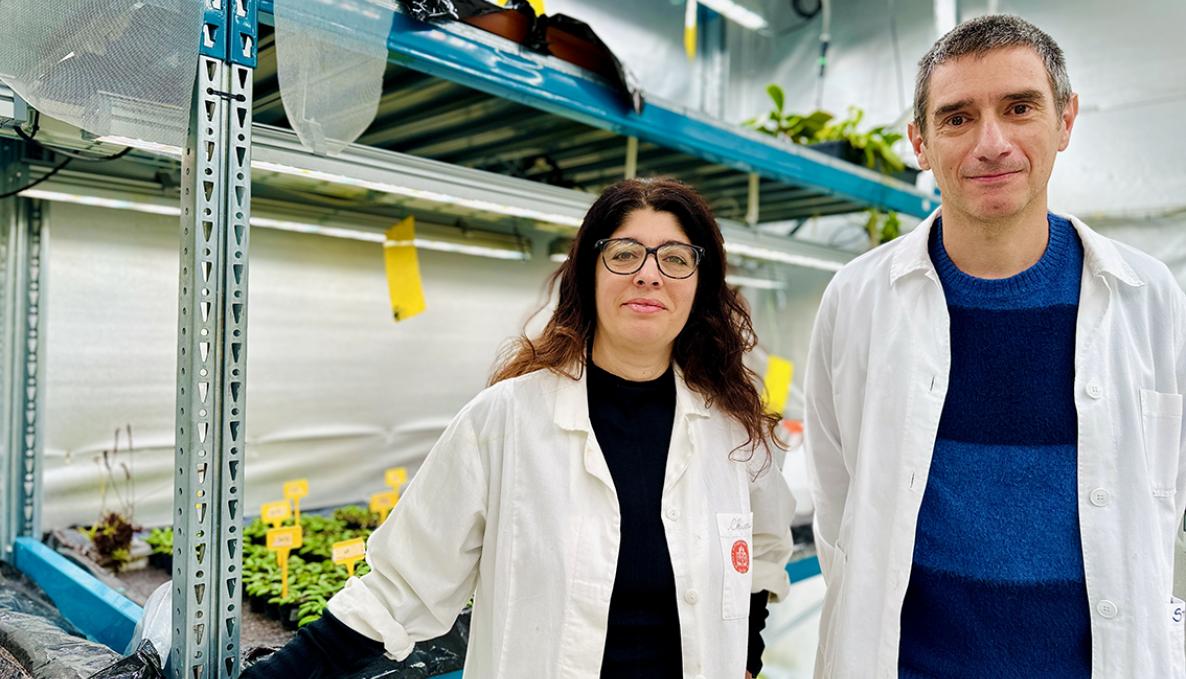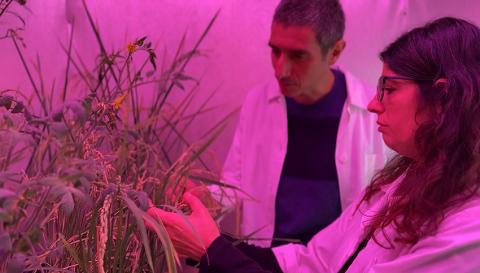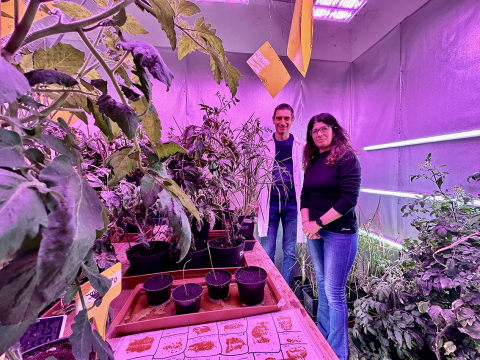A rice to meet the challenges of climate change and sustainability. The project involves the Institute of Plant Sciences

The world population's demand for food is growing and agriculture must be very efficient in order to be able to respond adequately, also in view of the ongoing climate change. What can scientific research do to meet this challenge?
A PRIN2022 project, called ‘Ris8: Exploiting tailored plant genotype x microbiome interaction towards sustainable increase of rice productivity and resilience to climate change’, intends to contribute to solving this problem, through the study of mixtures of microorganisms that are able to improve the growth of rice varieties in the presence of environmental stress. The project involves theInstitute of Plant Sciences of the Scuola Superiore Sant'Anna, thanks to the research work of Chiara Pucciariello, professor and expert in plant physiology. The sustainability of agri-food production also depends on complex relationships between plants and microorganisms that we are only recently learning to decipher. The aim of the project is in fact to study Italian rice varieties in order to identify key genes and crucial microorganisms, so as to identify the best plant-microorganism combinations that can allow rice to be cultivated in a more sustainable way and, above all, tolerant to climate change.
In addition to Chiara Pucciariello, the research group includes Alessio Mengoni, project coordinator and lecturer at theUniversity of Florence, an expert in bacterial genetics, the CNRInstitute of Biosciences and Bioresources in Naples, led by Carmen Bianco and Roberto Defez, with microbiological expertise, Giampiero Valè, a plant geneticist at theUniversity of Eastern Piedmont, and Vittoria Brambilla at theUniversity of Milan, an expert in new genomic editing techniques.
The first concrete results that could lead to important applications in the agricultural field are expected next year.





